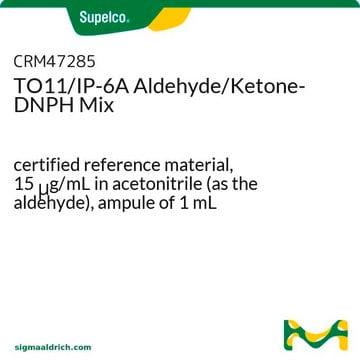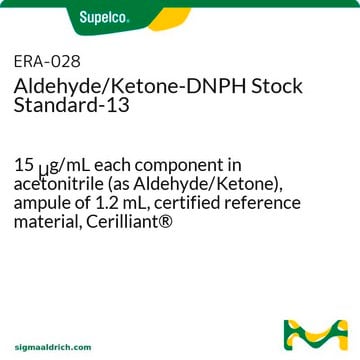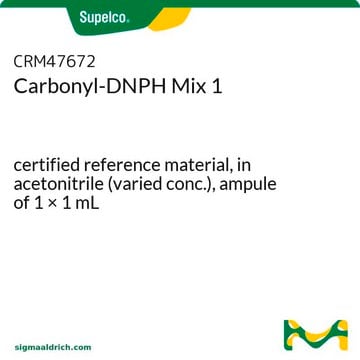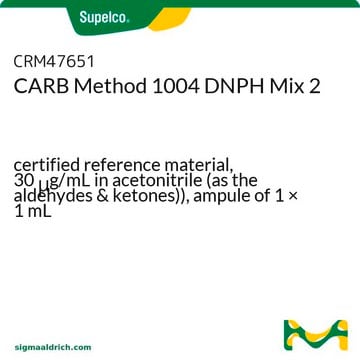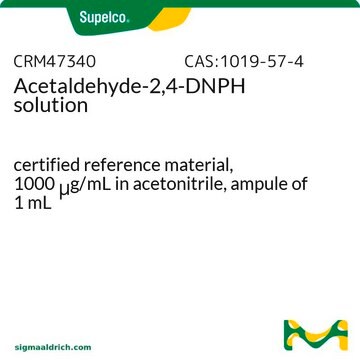CRM4M7285
TO11/IP-6A Aldehyde/Ketone-DNPH Mix
certified reference material, 15 μg/mL each component in acetonitrile (as the aldehyde or ketone), ampule of 3 × 1 mL
About This Item
Produits recommandés
Qualité
certified reference material
TraceCERT®
Niveau de qualité
Gamme de produits
TraceCERT®
CofA (certificat d'analyse)
current certificate can be downloaded
Conditionnement
ampule of 3 × 1 mL
Concentration
15 μg/mL each component in acetonitrile (as the aldehyde or ketone)
Technique(s)
HPLC: suitable
gas chromatography (GC): suitable
Application(s)
environmental
Format
multi-component solution
Température de stockage
2-8°C
Vous recherchez des produits similaires ? Visite Guide de comparaison des produits
Application
- For the determination of air-dispersed formaldehyde and carbonyl compounds (CCs) as vapors by denuder-filter sampling and gas chromatography method of analysis.
- To investigate the impact of NO, NO2 and CO in air samples on the capture and retention of formaldehyde and acetaldehyde with the DNPH-cartridge. The reaction products and chromatographic interferences are identified using chromatography techniques.
Autres remarques
Informations légales
Analyte
Mention d'avertissement
Danger
Mentions de danger
Classification des risques
Acute Tox. 4 Dermal - Acute Tox. 4 Inhalation - Acute Tox. 4 Oral - Eye Irrit. 2 - Flam. Liq. 2
Code de la classe de stockage
3 - Flammable liquids
Classe de danger pour l'eau (WGK)
WGK 2
Point d'éclair (°F)
35.6 °F - closed cup
Point d'éclair (°C)
2.0 °C - closed cup
Faites votre choix parmi les versions les plus récentes :
Déjà en possession de ce produit ?
Retrouvez la documentation relative aux produits que vous avez récemment achetés dans la Bibliothèque de documents.
Les clients ont également consulté
Notre équipe de scientifiques dispose d'une expérience dans tous les secteurs de la recherche, notamment en sciences de la vie, science des matériaux, synthèse chimique, chromatographie, analyse et dans de nombreux autres domaines..
Contacter notre Service technique